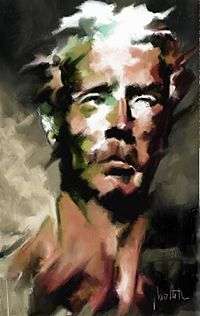Aquilino Ribeiro


Aquilino Gomes Ribeiro, ComL (Portuguese pronunciation: [ɐkiˈlinu ʁiˈbɐjɾu]; Carregal de Tabosa, Sernancelhe, September 13, 1885 – Lisbon, May 27, 1963), was a Portuguese writer and diplomat. He is considered as one of the great Portuguese novelists of the 20th century. He was nominated for the Nobel Literature Prize in 1960 after having been nominated by the Portuguese Author's Society.[1]
Natural son of Joaquim Francisco Ribeiro, a priest, and Mariana do Rosário Gomes, he had three older siblings: Maria do Rosário, Melchior and Joaquim. Destined to priesthood, Aquilino Ribeiro got involved in republican politics, opposing the Portuguese monarchy, and had to exile himself in Paris; he returned to Portugal in 1914, after the Republican Revolution of 1910.
He was involved in the opposition to António de Oliveira Salazar and the Estado Novo, whose government tried to censor or ban several of his books.
He was married twice: firstly, in 1913 to German Grete Tiedemann (ca. 1890-1927), by whom he had a son, Aníbal Aquilino Fritz Tiedeman Ribeiro in 1914; secondly, in Paris, in 1929, to Jerónima Dantas Machado, daughter of the deposed President of Portugal Bernardino Machado, by whom he had a son Aquilino Ribeiro Machado, born in Paris in 1930, who became the 60th Mayor of Lisbon (1977–1979).
Some works
He wrote more than 70 novels, the most famous being:
- "A Via Sinuosa" (1918)
- "Terras do Demo" (1919)
- "O Malhadinhas" (1920)
- "Estrada de Santiago" (1922)
- "Andam Faunos pelo Bosques" (1926)
- "Romance da Raposa" (1929)
- "Batalha Sem Fim" (1931)
- "Volfrâmio" (1944)
- "A Grande Casa de Romarigães" (1957)
- "Quando os Lobos Uivam" (1958; tr. 1963: When the Wolves Howl)